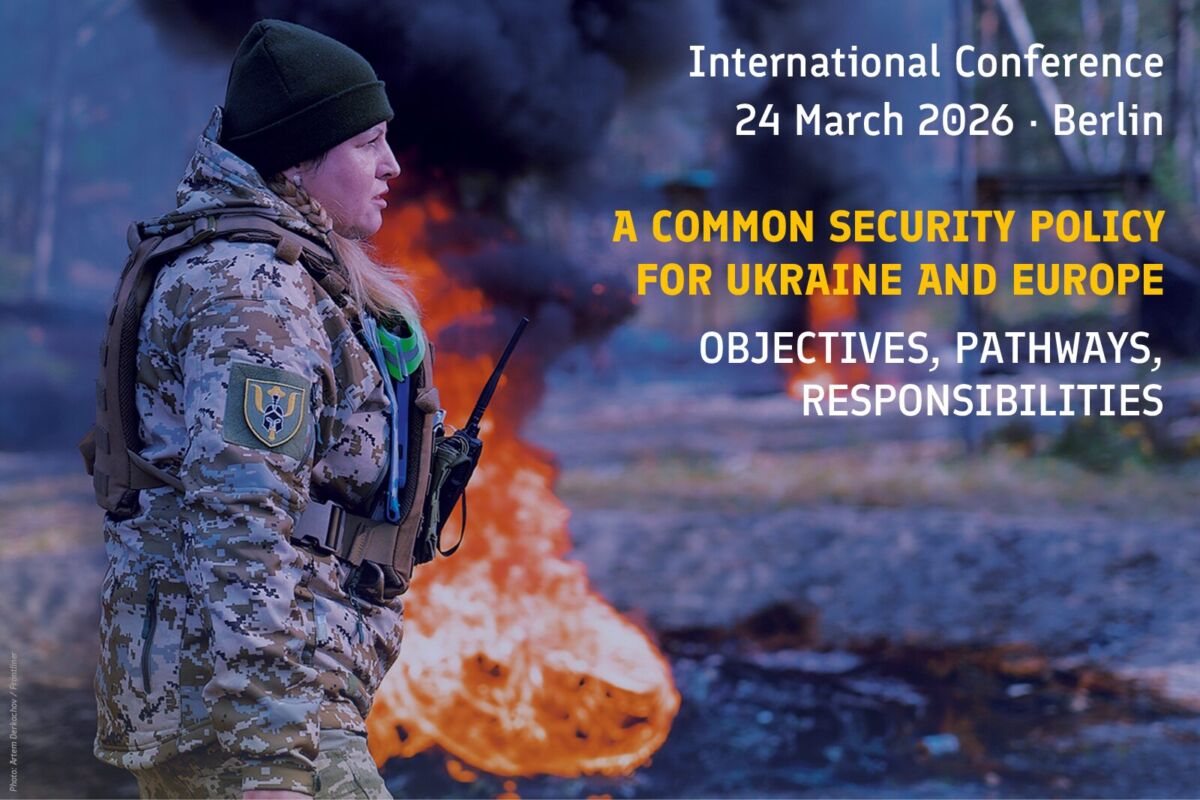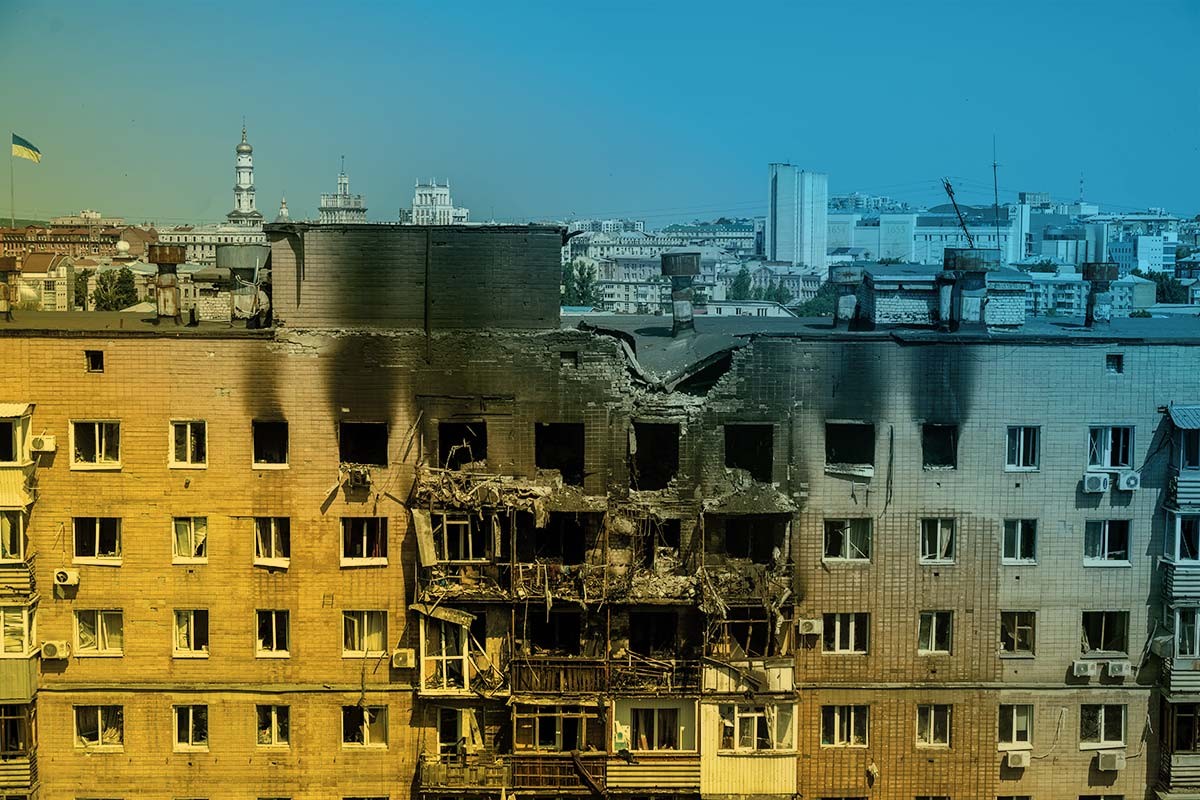Study on Russia: The other perspective on climate change (summary)

Climate change and its consequences are viewed differently in Russia than is the case in the West. The issue is understood as “part of a political game”. This difference in outlook has ramifications for both political and economic cooperation. The interview study “Russian Experts’ Opinions on Global Climate Change”, conducted by Russia’s Levada-Center and commissioned by the Center for Liberal Modernity, affords in-depth insight into the Russian elites’ perspective on climate change and its societal and economic consequences.
Russia’s relationship to climate change and climate protection is an ambivalent one. The country already started experimenting with wind energy back in the 1970s, its climate experts began warning about the dangers of climate change early on, and the Russian government signed on to the Paris Agreement, albeit somewhat belatedly.
On the other hand, the fossil fuel sector makes up a good 20 percent of Russia’s GDP while modern renewable energies account for less than one percent. Moreover, the Kremlin insisted for years that human activity did not influence the climate.
The study conducted by the highly respected Levada-Institute and commissioned by the Center for Liberal Modernity, a Berlin-based think tank, uncovers the reasons for the difference in the perception of climate change. The interviews with Russian experts from the spheres of research, business, politics and the media afford in-depth insight into the attitudes of the Russian elites towards climate change and its consequences.
Climate change did not even make it onto the public’s radar in Russia until a few years ago; there is no willingness to take individual or collective action on the issue. According to recent Levade-Center surveys, climate change ranks low on the Russian public’s list of immediate ecological problems, although 75 percent of the population believes that human activity plays a role in global warming.
The voices reproduced in the study make it quite clear that the framing of the discussion on climate change and efforts to combat in Russian society and among Russian elites is different from that in the West.
Understanding this different way of seeing the issue is important to understanding where attitude of Russian elites to Western climate protection initiatives, such as the European Green Deal, comes from and what lies behind their engagement on behalf of Nord Stream 2, the natural gas pipeline.
Threat to Russian identity
In Russia, global warming – along with the noticeable loss of “real” winter associated with it – is perceived as a threat to Russian identity. Yet the discussion about causes and responses is seen as the sinister workings of anti-Russian forces. The prevailing feeling among parts of the population, including some of the elites, is that there is an attempt to blame Russia for the pollution of the atmosphere by greenhouse gases and the worsening climate around the world.
Moreover, the discussion about climate change is perceived as a Western discourse. The statements cited in the study make it clear that the conflict between Russian and the West forms the backdrop against which Russian elites see the climate protection measures and their consequences.
Russia plans are different: its “Energy strategy 2035” anticipates an increase in exports of oil, natural gas and coal in the coming years. Thus, the European plans for a drastic reduction in the consumption of fossil fuels appear as an attack on Russian interests.
Several of the experts interviewed flatly dismissed the notion of a “green” economy, seeing it as a pipedream doomed to failure. Initial forays in that direction by the EU and more recently by the USA are assessed as attempts to squeeze Russia out of the international oil market to the advantage of the USA.
Inability to envision a post-fossil future
The hesitation or outright rejection with which some members of the Russian elites feel towards key measures towards an ecological modernisation of the Russian economy is associated with a fear that economic decline would result.
Particularly in the regions that are highly dependent on oil, natural gas or coal, people are unable to imagine the possibility of another kind of economic activity. Yet some experts are aware of the dynamics of the changes happening around Russia: “‘[G]reen’ politics [are] right at the start of their development. If it continues at this pace, many countries will simply no longer have a need for oil.” Some expressed concern about falling out of touch with developments and suffering substantial economic damage as a result.
Benefits that an ecological modernisation of the economy might bring and stimuli for growth and diversification that might result were seen in isolated cases. However, the Levada-Center study makes it clear that liberal forces harbour almost no hope for changes under the current government. Dependence on the fossil fuel sector is too great.
Similarly, neither the opposition nor Russia’s current leadership has envisioned what an alternative Russia might look like. The opposition has almost nothing in the way of positive images of the future to offer. The images that do exist involve crises and war or a continuation along current lines.
![]()
Did you like thike this article? If yes, you can support the independent editorial work and journalism of LibMod via a simple donation tool.
We are recognized as a non-profit organization, accordingly donations are tax deductible. For a donation receipt (necessary for an amount over 200 EUR), please send your address data to finanzen@libmod.de
Related topics
Newsletter bestellen
Stay tuned with our regular newsletter about all our relevant subjects.





